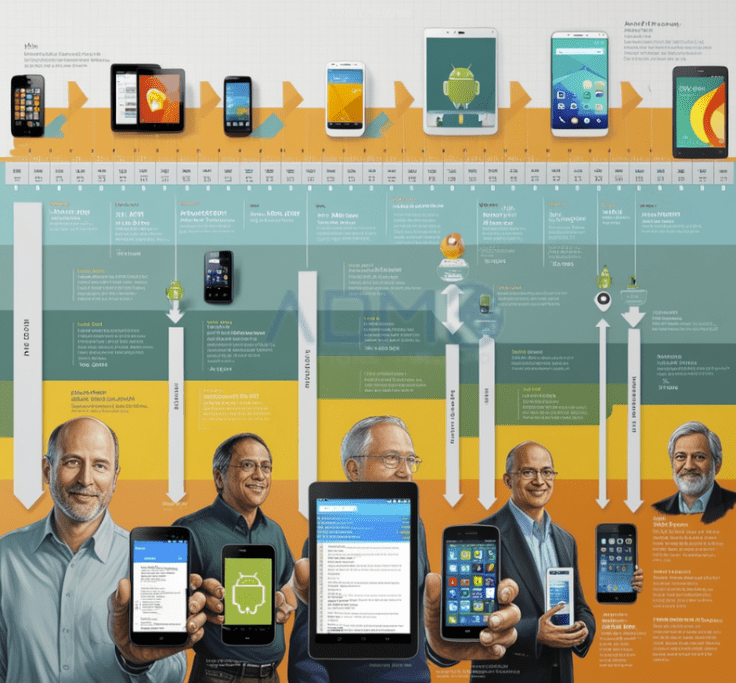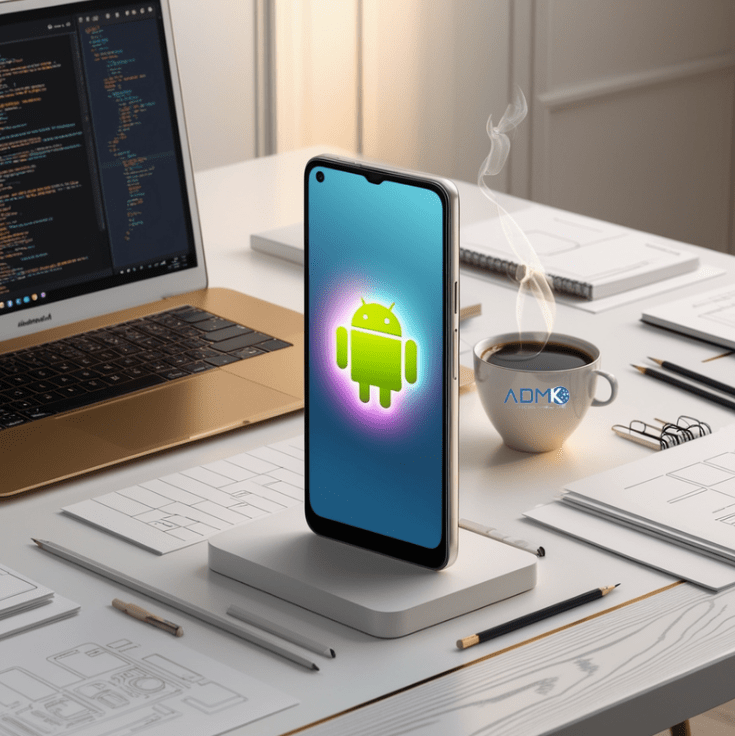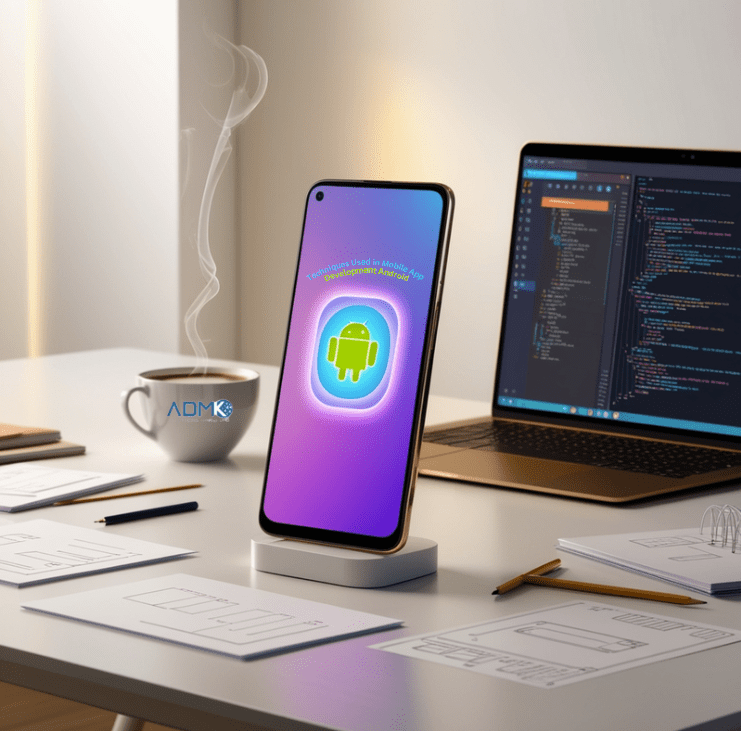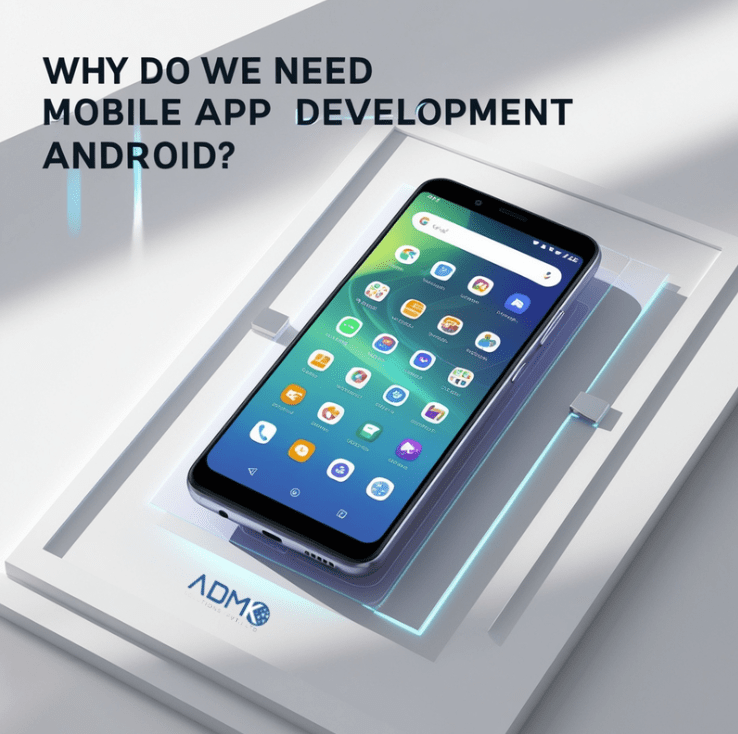History of Mobile App Development Android
Mobile app development Android has revolutionized the way we interact with technology and has had a profound impact on various industries. Understanding the history of mobile app development for Android provides insight into how this technology evolved and became integral to our daily lives.

Early Beginnings of Mobile App Development
The inception of mobile app development can be traced back to the early days of mobile phones. Initially, mobile phones were simple devices primarily used for calling and texting. However, as technology advanced, there was a growing demand for more functionalities. This led to the development of basic mobile applications like calendars, calculators, and games such as Snake, which became extremely popular.
The Emergence of Smartphones
The real game-changer in mobile app development came with the advent of smartphones. In 2007, Apple released the first iPhone, which introduced a new era of mobile computing. Although Android had been in development since 2003, it wasn’t until 2008 that the first Android-powered device, the HTC Dream (also known as the T-Mobile G1), was launched. This marked the beginning of mobile app development for Android on a significant scale.
The Rise of Android and the Google Play Store
Mobile app development for Android received a major boost with the establishment of the Google Play Store in 2008 (initially called the Android Market). This platform provided a centralized place for developers to distribute their apps and for users to discover and download them. The open-source nature of Android attracted a large community of developers, leading to rapid innovation and a diverse range of applications.
Major Milestones in Android Development
- Cupcake (2009): The release of Android 1.5 Cupcake introduced several features that were crucial for mobile app development for Android. It included support for third-party virtual keyboards, widgets, and video recording.
- Eclair (2009): Android 2.0 Eclair brought significant improvements in user interface and performance, including support for multiple accounts and Google Maps navigation, which became a staple for mobile app development for Android.
- Froyo (2010): Android 2.2 Froyo introduced the Just-In-Time (JIT) compiler, which improved app performance significantly. It also included support for Flash, enhancing the capabilities of mobile app development for Android.
- Gingerbread (2010): Android 2.3 Gingerbread brought a refined user interface, improved keyboard, and better copy-paste functionality, which were all beneficial for mobile app development for Android.
The Expansion and Maturation of Android
As Android continued to evolve, so did the complexity and quality of mobile app development for Android. Key developments during this period included:
- Honeycomb (2011): Specifically designed for tablets, Android 3.0 Honeycomb introduced a new user interface, optimizing mobile app development for Android tablets.
- Ice Cream Sandwich (2011): Android 4.0 Ice Cream Sandwich unified the smartphone and tablet operating systems, bringing features like face unlock and data usage controls, which were pivotal for mobile app development for Android.
- Jelly Bean (2012): Android 4.1 Jelly Bean focused on performance enhancements and introduced Google Now, adding a new dimension to mobile app development for Android with voice-activated search and notifications.
The Era of Modern Android
The modern era of mobile app development for Android saw the introduction of features that we now take for granted:
- KitKat (2013): Android 4.4 KitKat optimized the operating system to run on lower-end devices, expanding the reach of mobile app development for Android to a broader audience.
- Lollipop (2014): Android 5.0 Lollipop introduced Material Design, a new design language that greatly influenced mobile app development for Android by promoting a more consistent and visually appealing user experience.
- Marshmallow (2015): Android 6.0 Marshmallow brought features like app permissions and Google Now on Tap, which were essential for enhancing security and functionality in mobile app development for Android.
- Nougat (2016): Android 7.0 Nougat introduced multi-window support and enhanced notifications, providing more flexibility and power to mobile app development for Android.
Recent Developments and the Future
In recent years, mobile app development for Android has continued to evolve with each new version of the operating system:
- Oreo (2017): Android 8.0 Oreo introduced features like picture-in-picture mode and notification dots, improving the multitasking capabilities of mobile app development for Android.
- Pie (2018): Android 9.0 Pie brought a new gesture-based navigation system and adaptive battery features, enhancing the user experience and efficiency in mobile app development for Android.
- Android 10 (2019): The first version to drop the dessert naming convention, Android 10 introduced system-wide dark mode and improved privacy controls, which were crucial for modern mobile app development for Android.
- Android 11 (2020): Focused on user-centric features, Android 11 included improved messaging notifications and better control over connected devices, which were significant for mobile app development for Android in the era of smart home technology.
The Impact of Android on the Mobile App Development Industry
Mobile app development for Android has had a profound impact on the technology landscape. The open-source nature of Android has democratized app development, allowing developers from all over the world to contribute and innovate. This has resulted in a vast and diverse ecosystem of apps, catering to virtually every need and interest.
Furthermore, mobile app development for Android has driven the growth of various industries, including eCommerce, gaming, social media, and health tech. Businesses have leveraged Android apps to reach a global audience, enhance customer engagement, and streamline operations.
Why Do We Need Mobile App Development Android?

In today’s digital era, the significance of mobile app development Android cannot be overstated. With the proliferation of smartphones and the increasing reliance on mobile applications for various daily activities, Android app development has emerged as a critical component for businesses and developers alike. This essay explores the reasons behind the necessity of mobile app development Android, delving into its benefits and implications for the modern world.
Market Dominance of Android
Android holds a significant share of the global mobile operating system market. According to Statista, Android accounts for over 70% of the global smartphone OS market. This dominance highlights the vast user base that businesses can reach through mobile app development Android. By developing applications for the Android platform, companies can tap into a larger audience, thereby increasing their visibility and potential customer base.
Open-Source Platform
One of the primary reasons for the widespread adoption of mobile app development Android is its open-source nature. Android’s open-source framework allows developers to access and modify the source code freely. This flexibility encourages innovation and customization, enabling developers to create unique and tailored applications that cater to specific user needs. Moreover, the open-source nature of Android significantly reduces development costs, making it an attractive option for startups and small businesses.
Cost-Effective Development
Mobile app development Android is often more cost-effective compared to other platforms. The availability of a wide range of development tools and resources, coupled with the open-source nature of Android, reduces the overall cost of development. Additionally, the extensive community support available for Android developers helps in troubleshooting and accelerating the development process. This cost-effectiveness is crucial for businesses looking to maximize their return on investment.
Wide Range of Devices
Android powers a diverse array of devices, from high-end smartphones to budget-friendly options. This diversity ensures that mobile app development Android can cater to a broad spectrum of users with varying device preferences and budget constraints. Businesses can develop applications that run seamlessly across multiple devices, ensuring a wider reach and better user engagement.
High Customization Potential
Android’s open-source nature also translates to high customization potential. Developers can customize their applications extensively to offer unique features and functionalities that stand out in the competitive app market. Mobile app development Android allows for the integration of advanced technologies such as augmented reality (AR), virtual reality (VR), and artificial intelligence (AI), providing users with innovative and engaging experiences.
Google Integration
Android is a Google product, and as such, mobile app development Android benefits from seamless integration with Google services. This integration includes access to Google Maps, Google Drive, Google Analytics, and more. Such integrations enhance the functionality and user experience of Android applications, making them more appealing to users who rely on these services for their daily activities.
Enhanced Security Features
With each new release, Android introduces improved security features to protect user data and ensure safe app usage. Mobile app development Android incorporates these security enhancements, providing users with a secure platform to interact with. The Google Play Protect feature, for instance, scans and verifies the safety of applications before they are made available for download, ensuring a secure user environment.
Higher Revenue Potential
The vast user base of Android translates to higher revenue potential for businesses. Mobile app development Android can lead to substantial earnings through in-app purchases, advertisements, and subscription models. The global reach of Android ensures that applications have access to international markets, further boosting revenue opportunities.
Rapid Deployment
The development and deployment process for Android apps is relatively quick and straightforward. The Google Play Store facilitates a faster review process, allowing developers to launch their applications more rapidly compared to other platforms. This rapid deployment is advantageous for businesses looking to capitalize on market trends and consumer demands promptly.
Ease of Adoption
For developers, mobile app development Android is relatively easy to learn and adopt. The extensive documentation, tutorials, and community support available online make it accessible for both novice and experienced developers. This ease of adoption accelerates the development process and encourages more developers to venture into Android app development.
Versatile Development Tools
Android offers a wide range of development tools and frameworks that simplify the app development process. Tools such as Android Studio, Firebase, and Kotlin provide developers with robust and versatile resources to create high-quality applications. Mobile app development Android benefits from these tools, ensuring efficient development and maintenance.
Cross-Platform Compatibility
Android applications can be made compatible with other platforms through various development frameworks such as Flutter and React Native. This cross-platform compatibility enhances the reach of mobile app development Android, allowing businesses to target users across different operating systems without significant additional costs.
Improved User Experience
Android’s user-friendly interface and customizable features contribute to an enhanced user experience. Mobile app development Android prioritizes user satisfaction by providing intuitive and engaging applications. The ability to customize user interfaces extensively ensures that applications can meet the specific preferences and needs of users.
Innovative Technologies
Mobile app development Android is at the forefront of integrating innovative technologies. The platform supports the development of apps utilizing cutting-edge technologies like IoT (Internet of Things), blockchain, and machine learning. These innovations drive the creation of advanced applications that cater to evolving user demands.
Future Prospects
The future of mobile app development Android looks promising, with continuous advancements and updates from Google. The platform’s adaptability and commitment to innovation ensure that Android will remain a dominant force in the mobile app industry. Businesses investing in mobile app development Android today are well-positioned to benefit from future technological trends and market opportunities.
Comprehensive Techniques Used in Mobile App Development Android

Mobile app development Android is a dynamic field that leverages a multitude of techniques to create functional, user-friendly, and innovative applications. With the proliferation of smartphones, the demand for high-quality Android applications has surged. This necessitates the use of various development techniques to meet user expectations and industry standards. Below is a detailed exploration of the techniques used in mobile app development Android.
Java and Kotlin Programming Languages
Java has been the primary language for mobile app development Android since its inception. Its object-oriented nature, robust libraries, and extensive community support make it a favorite among developers. Kotlin, introduced by JetBrains, has gained immense popularity due to its concise syntax, null safety, and interoperability with Java. Kotlin has now become the preferred language for Android development, offering modern features that streamline the coding process.
Integrated Development Environment (IDE)
Android Studio is the official IDE for mobile app development Android. It provides a comprehensive suite of tools to enhance productivity. Key features include:
- Code Editor: Supports code completion, refactoring, and syntax highlighting for both Java and Kotlin.
- Emulator: Allows developers to test applications on various virtual devices.
- Debugging Tools: Offer advanced debugging capabilities to identify and fix issues.
- Layout Editor: Facilitates the design of user interfaces with drag-and-drop components.
Android SDK and NDK
The Android Software Development Kit (SDK) is essential for mobile app development Android. It includes APIs, libraries, and tools necessary for building, testing, and debugging Android apps. The Android Native Development Kit (NDK) is used for performance-critical applications, allowing developers to write parts of the app in C or C++.
Architecture Patterns
To maintain code structure and enhance scalability, various architecture patterns are employed in mobile app development Android:
- Model-View-Controller (MVC): Separates the application logic into three interconnected components.
- Model-View-ViewModel (MVVM): Facilitates a clear separation between the user interface and the underlying logic.
- MVP (Model-View-Presenter): A variant of MVC that decouples the business logic from the UI components.
User Interface Design
User Interface (UI) design is a critical aspect of mobile app development Android. Techniques used include:
- Material Design: Google’s design language that emphasizes bold, graphic, and intentional design.
- Responsive Layouts: Ensuring the app looks good on various screen sizes and orientations.
- Custom Views: Creating custom UI components to enhance user experience.
Backend Integration
Mobile apps often require backend services for data storage, authentication, and real-time updates. Techniques used in mobile app development Android for backend integration include:
- RESTful APIs: Standardized method to communicate between the app and backend servers.
- Firebase: Google’s platform offering various backend services such as real-time databases, authentication, and cloud storage.
- GraphQL: An alternative to RESTful APIs, offering more flexibility in querying data.
Data Storage
Efficient data storage is vital in mobile app development Android. Common techniques include:
- SQLite: A lightweight, embedded database used for local storage.
- Room Persistence Library: Part of Android Jetpack, it provides an abstraction layer over SQLite for easier data manipulation.
- Shared Preferences: For storing small amounts of key-value pair data.
Performance Optimization
Ensuring optimal performance is crucial in mobile app development Android. Techniques include:
- Memory Management: Avoiding memory leaks and optimizing garbage collection.
- Efficient Layouts: Reducing the complexity of UI layouts to improve rendering speed.
- Network Optimization: Using caching and background threads for network operations to prevent UI blocking.
Testing
Testing is an integral part of mobile app development Android. Various testing techniques ensure the app functions as intended:
- Unit Testing: Testing individual components or functions.
- UI Testing: Automated tests to verify the UI behaves correctly under various conditions.
- Integration Testing: Ensuring different parts of the app work together seamlessly.
Continuous Integration and Continuous Deployment (CI/CD)
CI/CD practices are essential in mobile app development Android for automating the build, testing, and deployment processes. Tools like Jenkins, CircleCI, and GitHub Actions help streamline these processes, ensuring faster and more reliable releases.
Security Measures
Security is paramount in mobile app development Android. Techniques to enhance security include:
- Encryption: Encrypting sensitive data both in transit and at rest.
- Secure Authentication: Implementing OAuth, JWT, and other secure authentication methods.
- Code Obfuscation: Making the source code difficult to understand to prevent reverse engineering.
Third-Party Libraries and SDKs
Leveraging third-party libraries and SDKs can significantly speed up mobile app development Android. Popular libraries include:
- Retrofit: For network requests and API integration.
- Glide/Picasso: For image loading and caching.
- Dagger/Hilt: For dependency injection.
Cross-Platform Development
While native development is prevalent, cross-platform frameworks are also used in mobile app development Android to target multiple platforms with a single codebase. Examples include:
- Flutter: Google’s UI toolkit for building natively compiled applications.
- React Native: Facebook’s framework for building mobile apps using React.
App Distribution
Distributing the app through Google Play Store is a critical step in mobile app development Android. This involves preparing the app for release, signing it with a key, and adhering to Google’s guidelines for submission.
Analytics and Monitoring
Post-launch, it’s essential to monitor the app’s performance and user engagement. Techniques used in mobile app development Android for analytics and monitoring include:
- Google Analytics: For tracking user behavior and app usage.
- Crashlytics: For monitoring crashes and stability issues.
- Firebase Analytics: Providing detailed insights into user interactions and events.
ADMK Solutions Services:

Custom App Development
ADMK Solutions offers comprehensive mobile app development Android services that cater to the unique needs of businesses. Our custom app development process is designed to create highly tailored applications that align perfectly with your business goals and user expectations. Our team of expert developers is skilled in the latest Android technologies and tools, ensuring that your app is not only functional but also innovative and scalable.
From conceptualization to deployment, ADMK Solutions manages the entire development lifecycle. We start by understanding your business requirements and target audience to create a detailed project plan. This plan includes wireframes, prototypes, and a clear timeline to keep the project on track. Throughout the development process, we ensure constant communication and collaboration with you, providing regular updates and incorporating your feedback.
Our custom mobile app development Android services also focus on security and performance. We implement robust security measures to protect user data and optimize the app for speed and efficiency. Whether you need an eCommerce app, a social networking platform, or a productivity tool, ADMK Solutions has the expertise to deliver a high-quality Android app that meets your business needs.
iOS Development
In addition to our mobile app development Android services, ADMK Solutions also excels in iOS development. Our team of experienced iOS developers creates top-notch applications for Apple’s ecosystem, ensuring seamless performance across all iOS devices. We follow best practices in iOS development, leveraging Swift and Objective-C to build robust and user-friendly apps.
Our iOS development process mirrors our mobile app development Android approach. We begin with a thorough analysis of your business requirements and user expectations, followed by meticulous planning and execution. Our designers and developers work closely to create an app that not only functions flawlessly but also offers an engaging user experience.
ADMK Solutions understands the importance of staying updated with the latest iOS trends and technologies. We continuously upgrade our skills and tools to deliver cutting-edge iOS applications that provide a competitive edge to your business. By offering both iOS and mobile app development Android services, we ensure that your app reaches a broader audience, maximizing its potential impact.
Mobile App Design
A crucial aspect of mobile app development Android is the design. ADMK Solutions places a strong emphasis on creating visually appealing and user-friendly designs that enhance the overall user experience. Our design process starts with understanding your brand identity and target audience. We then create wireframes and prototypes to visualize the app’s layout and functionality.
Our designers focus on creating intuitive and engaging user interfaces that make navigation effortless. We pay attention to every detail, from color schemes and typography to icons and animations, ensuring a cohesive and attractive design. User experience (UX) is at the core of our design philosophy, and we conduct thorough usability testing to refine the app’s interface.
By integrating our design expertise with our mobile app development Android services, we deliver apps that are not only functional but also aesthetically pleasing. A well-designed app enhances user satisfaction and retention, contributing to the overall success of your mobile application.
Wearable App Development
ADMK Solutions is at the forefront of innovation with our mobile app development Android services for wearable devices. As wearable technology continues to grow in popularity, we recognize the need for apps that cater to these unique devices. Our team develops applications for various wearable platforms, including smartwatches, fitness trackers, and AR/VR headsets.
We understand that wearable apps require a different approach compared to traditional mobile apps. Our developers focus on creating lightweight, responsive, and intuitive applications that offer seamless functionality on wearable devices. We ensure that the app’s design and performance are optimized for the smaller screens and specific use cases of wearables.
By incorporating wearable app development into our mobile app development Android services, ADMK Solutions helps businesses tap into new opportunities and reach a wider audience. Whether you need a health monitoring app, a navigation tool, or an entertainment platform for wearables, we have the expertise to deliver innovative and effective solutions.
Cross Platform Development
ADMK Solutions offers cross-platform development as part of our mobile app development Android services, enabling businesses to reach users on both Android and iOS platforms with a single codebase. Our cross-platform development approach leverages frameworks like React Native, Flutter, and Xamarin to create apps that deliver a consistent experience across different devices and operating systems.
With cross-platform development, we ensure that your app maintains high performance and native-like functionality on both platforms. This approach not only reduces development time and costs but also simplifies maintenance and updates. Our developers are skilled in optimizing cross-platform apps for various screen sizes and resolutions, ensuring a seamless user experience.
By integrating cross-platform development into our mobile app development Android services, ADMK Solutions provides a cost-effective solution for businesses looking to maximize their reach and impact. Whether you are launching a new app or expanding an existing one, our cross-platform development services ensure that your app delivers a high-quality experience to all users, regardless of their device or platform preference.
In conclusion, ADMK Solutions offers a wide range of mobile app development Android services, including custom app development, iOS development, mobile app design, wearable app development, and cross-platform development. Our comprehensive approach ensures that your app is not only functional and innovative but also reaches a broad audience, providing maximum value to your business.
